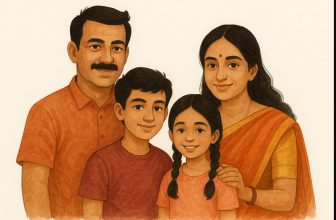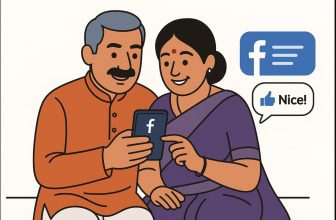In India, marrying around 25 is still considered “normal” by many families especially outside metros. While attitudes are changing, the pressure to “settle early” continues. But is it really a good idea?
Here’s a deeper look at what marrying early (around 25) really means in Indian conditions from social expectations to housing, careers, and fertility.
7 Real Advantages of Marrying Around Age 25 in India
| Advantage | India-Specific Insight |
|---|---|
| Family pressure reduced | Especially important for daughters |
| Fertility + planning buffer | Less medical and social pressure |
| Stronger matchmaking chances | More arranged marriage options |
| Joint cost savings | Start EMI or rent planning together |
| Better fit in joint families | More adaptability, fewer clashes |
| Smoother love marriage approval | Earlier marriage seen as “serious” |
| Career-building as a team | Early couple synergy helps in job moves |
1. You Reduce Family and Relative Pressure Especially for Women
- Indian women, especially in Tier-2 cities and joint families, face constant questions: “Shaadi kab karoge?”
- Marrying at 25 satisfies a key cultural milestone before families start panicking about “late marriage” stigma.
- It prevents emotionally exhausting situations like biodata pressure, forced temple visits, or rishta meets every weekend.
2. Your Fertility Window Aligns with Traditional Family Planning
- Many Indian couples want kids by 28-30 due to societal expectations and concerns around pregnancy risks.
- Marrying at 25 allows a 2-3 year buffer before child planning pressure begins, especially from in-laws.
Also, India still lacks widespread fertility awareness which means relatives assume after 30 equals “too late.”
3. You May Have a Better Chance at Arranged Matchmaking
- In the arranged marriage system, age 24-26 is the “prime window” for women and slightly later for men.
- Families with strong caste, community, or horoscope filters are far more active at this age.
- If you’re open to arranged marriage but delay too long, you may face fewer options especially in traditional setups.
4. Shared Housing Costs and Early Home EMI Planning
- Urban couples who marry at 25 often start co-managing rent or home loans early, especially in cities like Pune, Hyderabad, Ahmedabad, or Kochi.
- Starting EMIs in your 20s means you own property sooner, a big deal in India where owning a flat still signals “stability.”
5. Easier Acceptance into Joint or Semi-Joint Families
- Indian joint families often expect younger spouses to “adjust.” At 25, you’re more flexible, less set in personal routines.
- Older individuals (30+) marrying into joint families face more scrutiny, resistance, or even conflict for “being too independent.”
Especially for daughters-in-law, marrying young means fewer clashes over rituals, kitchen routines, or expectations.
6. Helps in Dowry-Free Love Marriages in Traditional Families
- In conservative families, love marriages are more accepted when done at a “right age” like 24-26.
- Pushing marriage beyond 30 raises suspicion (“Why now? Why so late?”) and can trigger more interference.
- Early marriage can help avoid dowry demands in love setups by showing the couple is serious and not “delaying unnecessarily.”
7. You Can Build Dual Careers While Still Young
- When two educated people marry around 25, they hit peak career growth years (30-40) together.
- Employers in India often offer family health insurance, maternity benefits, or transfer accommodations which can benefit young couples earlier.
This teamwork advantage is practical in cities with high job movement, like Bengaluru or Gurugram.
Five Disadvantages of Marrying Early
| Disadvantage | India-Specific Issue |
|---|---|
| Financial dependence | Low income = higher in-law control |
| Parental control persists | Limited freedom in key decisions |
| Career sacrifices (esp. women) | Traditional roles still common |
| Social circle disconnect | Friends may move on differently |
| Boundaries harder to set | Age gap vs authority gap with elders |
1. You May Not Be Financially Independent Yet
- At 25, many Indians are still in first or unstable jobs, especially in fields like civil services, academia, design, law, or startups.
- Marrying early can lead to financial dependency on in-laws or parents especially if one partner earns significantly less.
2. Family Interference Is Higher When You’re Younger
- Indian parents often see younger married couples as “still needing guidance.”
- That means interference in decisions like what city to live in, when to have kids, even where to go on holidays.
This is tougher for people who value independence.
3. Women May Be Pressured to Prioritize Home Over Career
- Even if a woman is working after marriage, she may be expected to handle more household chores, attend rituals, and be more “available” for in-laws especially in early years.
- Career compromises are more common when marriage happens before reaching a stable position.
This is a hard truth in traditional households, despite modern outlooks.
4. Your Friend Group May Drift Apart
- Many friends at 25 are still single, studying, or traveling. Getting married early can create emotional distance, especially if they can’t relate to your responsibilities.
- Over time, this can lead to isolation, especially for women expected to spend more time “in the family.”
5. Harder to Say No to Traditions You Don’t Believe In
- At 25, you’re more likely to go along with things you disagree with, just to “adjust”: gender roles, forced family trips, unnecessary expenses on weddings or gifts.
People who marry later often have more confidence to say “no” or set boundaries clearly.
Early Marriage in India Has Pros Only If It’s Truly Your Choice
If you’re 25 and you feel emotionally ready, have a partner who respects your growth, and have a say in your life early marriage can work. But if you’re marrying to satisfy relatives or meet deadlines, it may cause regret, especially if career and self-identity aren’t yet stable.
Early marriage in India is not a failure or shortcut. But it should never feel like a trap.





